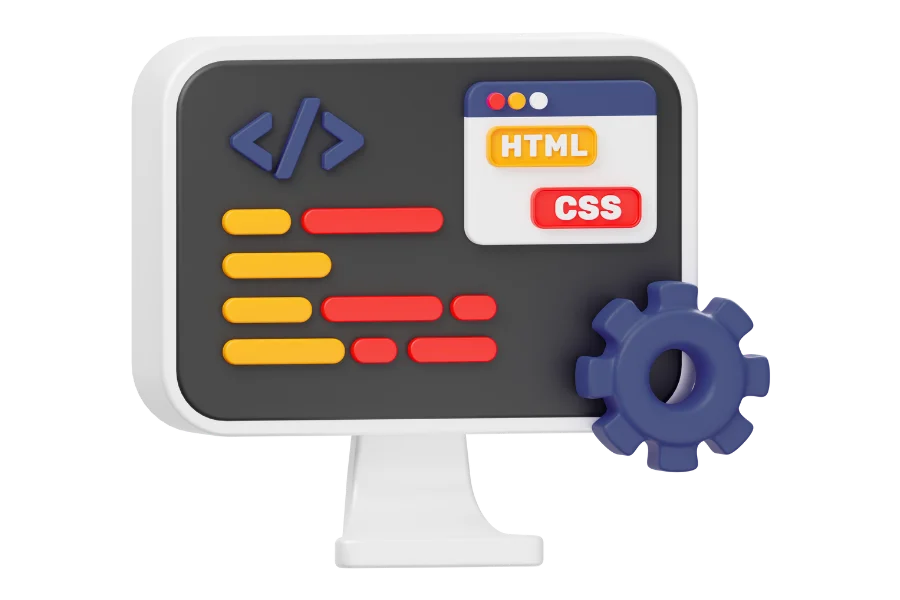Overview of a Master’s in Computer Science
The Master of Science in Computer Science (MSCS) is a graduate programme designed to provide advanced technical expertise, problem-solving skills and research capabilities across the breadth of computing. It builds on foundational computer science principles while offering opportunities to specialise in emerging and high-demand areas.
Most MSCS programmes balance core theoretical coursework with applied learning and research. Core modules typically include:
- Advanced Algorithms and Data Structure
- Computer Architecture and Operating Systems
- Database Systems and Information Management
- Programming Languages and Software Engineering
- Theory of Computation
- Artificial Intelligence and Machine Learning
- Computer Networks and Distributed Systems
- Cybersecurity Principles
Students can tailor their degree through electives or concentration tracks aligned with industry needs or research interests. Popular options include:
- Advanced Machine Learning
- Cloud Computing and Virtualisation
- Computer Vision and Image Processing
- Human-Computer Interaction
- Natural Language Processing
- Quantum Computing
- Robotics and Autonomous Systems
- Web and Mobile Application Development
- Data Science and Big Data Analytics
Many programmes feature a capstone project, thesis or industry practicum, allowing students to apply advanced computing methods to solve complex, real-world problems. These may involve collaboration with technology companies, research labs or interdisciplinary teams.
Graduates are prepared for technical and leadership roles in diverse sectors, from software development and AI research to cybersecurity and data science. Common career paths include:
- AI/ML Engineer
- Computer Scientist
- Cybersecurity Analyst
- Data Scientist
- Full Stack Developer
- Research Scientist
- Software Engineer
- Systems Architect
- Cloud Solutions Architect
- DevOps Engineer
Category | Details |
Core Subjects | Advanced Algorithms and Data Structures; Computer Architecture and Operating Systems; Database Systems and Information Management; Programming Languages and Software Engineering; Theory of Computation; Artificial Intelligence and Machine Learning; Computer Networks and Distributed Systems; Cybersecurity Principles |
Specialisations / Electives | Advanced Machine Learning; Cloud Computing and Virtualisation; Computer Vision and Image Processing; Human–Computer Interaction; Natural Language Processing; Quantum Computing; Robotics and Autonomous Systems; Web and Mobile Application Development; Data Science and Big Data Analytics |
Capstone Project / Thesis | Applied research or industry project addressing real-world computing challenges; often in collaboration with technology companies or research labs |
Career Outcomes | AI/ML Engineer; Computer Scientist; Cybersecurity Analyst; Data Scientist; Full Stack Developer; Research Scientist; Software Engineer; Systems Architect; Cloud Solutions Architect; DevOps Engineer |
Want to pursue a Master’s in Computer Science?
Benefits of studying a Master’s in Computer Science
A Master’s in Computer Science helps aspiring computer engineers and developers deepen their technical knowledge and explore emerging areas of the field. The curriculum typically includes modules on programming languages, advanced algorithms and the software development lifecycle. A computer science master’s degree is highly in demand and relevant, offering long-term career stability and competitive salaries across a wide range of industries. Some of the many benefits of holding a Master’s in Computer Science include:
1) Opportunities across sectors:
Graduates are not limited to a single industry. The demand for computing and software development spans multiple sectors. Those interested in sports technology may find roles with the Indian Premier League, Indian Super League or even the National Football League. Others may apply their skills at companies such as Swiggy or Zomato, where user experience and backend systems play a critical role. This flexibility enables graduates to align their work with personal interests while building a strong career.
2) Scope for specialisation:
For students interested in focused expertise, the degree offers pathways in artificial intelligence, data science, cybersecurity, robotics and other technical domains. These areas are not only intellectually stimulating but also lead to increased earning potential. According to the Bureau of Labor Statistics, computer and information research scientists with a Master’s earn a median salary of USD 122,840 per year.
3) Strong financial return:
PayScale reports that professionals with this qualification earn an average annual salary of USD 103,179, with an hourly rate of USD 40.12. In comparison, those with only a bachelor’s degree earn about USD 86,469 annually, with hourly earnings around USD 16.00. With such income levels, graduates from highly ranked institutions often repay student loans within three financial years.
4) Preparation for a PhD:
A master’s degree is often the first step for those considering a doctorate. It provides valuable research exposure and helps define academic interests. The Master’s in Computer Science programme is also beneficial for students who have completed their undergraduate studies in a different field. It also facilitates connections with faculty members who can support PhD applications through supervision and academic recommendations.
5) Career advantage at technology firms:
Global technology companies actively seek candidates with advanced qualifications and expertise. Currently, Google lists over 350 full-time roles for applicants holding a Master’s in Computer Science. Facebook is also a recruiter. These firms value strong technical skills, analytical thinking and subject-specific knowledge, attributes that are developed through a rigorous postgraduate curriculum.
Benefit | Details |
Versatility across industries | Skills apply in sectors such as sports, food tech, finance and healthcare |
Specialisation opportunities | Options include AI, cybersecurity, robotics, software engineering and more |
Higher earning potential | Median salary of USD 122,840 (Bureau of Labor Statistics) |
Strong return on investment | Average salary: USD 103,179; loans repayable within three financial years |
Pathway to a PhD | Ideal foundation for doctoral research, especially after a different major |
Hiring advantage at top tech firms | Over 350 full-time roles at Google alone for those with this qualification |
Should you pursue a Master’s in Computer Science?
How to choose the right Master's in Computer Science programme
As technology evolves rapidly, the demand for professionals who can maintain and advance software, systems and networks continues to rise. According to the Bureau of Labor Statistics, nearly all computer science-related roles are projected to grow faster than most other occupations. This expansion is primarily driven by the increasing importance of cloud computing, mobile devices, data security and user interface design, areas that did not exist in their current form a decade ago. Before selecting a Master’s in Computer Science programme, applicants should consider the kind of roles they are interested in and the work environments they prefer. For example, some may enjoy solving problems collaboratively, while others may prefer independent analysis or systems design. Reflecting on such preferences can help identify a course that aligns with long-term career objectives.
Strong mathematical skills, critical thinking, and the ability to solve complex problems are essential for success in any computer science discipline. Applicants are advised to assess their strengths in these areas while shortlisting programmes. Computer science professionals are employed in a wide range of industries, including healthcare, retail, manufacturing, education, finance, insurance, travel, hospitality, marketing and software development. Most of these sectors now rely heavily on user experience, digital infrastructure and secure systems.
A Master’s in Computer Science provides a well-rounded foundation for careers in software development, systems engineering and network administration. Graduates may pursue roles such as:
- Software developer
- Computer network architect
- Systems administrator
- Database administrator
- Computer and information systems manager
- Information systems analyst
- Information security analyst
When evaluating different programmes, applicants should consider the following:
1) Mode and duration of study:
Full-time, part-time and online options are available. Applicants should assess their current responsibilities and financial situation before deciding which format best suits them.
2) Post-study work opportunities:
Graduates seeking international work experience should review stay-back options:
- In the US, the F-1 visa permits graduates to remain for one year. Those enrolled in a STEM-designated course may be eligible to extend their stay by an additional two years.
- The UK: Currently, international students completing undergraduate, master’s or doctoral degrees can remain in the UK for two years. However, as per the proposed 2025 immigration policies, international students completing undergraduate, postgraduate or doctoral programmes can work in the UK for 18 months
3) Cost and funding options:
Applicants should evaluate whether they can afford tuition fees and living expenses. It is advisable to explore scholarships or sponsorship opportunities offered by universities, governments or private organisations.
4) Faculty expertise and research facilities:
Programmes with experienced faculty members and strong research departments can offer academic depth and practical experience. Capstone projects and industry-facing opportunities can further enhance a student’s learning. Mentorship from faculty can also support applicants who intend to pursue research or innovation in the field.
5) Entry requirements and eligibility:
Each institution outlines its prerequisites. For example, Stanford University requires the following foundation courses for its Master of Science in Computer Science programme:
- Logic, Automata and Complexity (CS 103)
- Probability (CS 109 or equivalent)
- Algorithmic Analysis (CS 161)
- Computer Organisation and Systems (CS 107)
- Principles of Computer Systems (CS 110 or 111)
In some cases, universities may also expect applicants to have relevant professional experience before applying to the programme.
Factors to Consider | Details |
Mode and duration of study | Choose between full-time, part-time or online formats based on current responsibilities and finances |
Post-study work opportunities | USA: 1–2 years stay after graduation; UK: 18 months post-study work visa for international students. |
Cost and funding options | Assess affordability; explore scholarships and sponsorships from universities or external organisations. |
Faculty expertise and research facilities | Look for experienced faculty, capstone projects and research-driven environments with industry exposure. |
Entry requirements and eligibility | Check course prerequisites and determine if professional experience is required. |
Need help selecting the right Master’s in Computer Science programme?
How to apply for a Master’s in Computer Science
An intake refers to the period during which a programme begins. Most postgraduate programmes in the US, Canada, the UK and Europe follow a fall intake cycle, which spans the months of July to September. Australia also offers a July intake, although the primary start date there is in February, commonly referred to as the spring intake. A few universities in the United Kingdom and Europe also offer spring admissions. All applications for a Master’s in Computer Science are submitted online, typically through the university’s official application portal. While each institution may have its own set of requirements, the following are standard components of the application process:
Application Component | Details |
Resume | Highlights academic history, work experience, and long-term activities or achievements |
Letters of recommendation | Typically 2-3 recommendations: academic and/or professional, depending on experience |
Standardised test scores | Includes transcripts, GRE/GMAT scores, and proof of English proficiency (TOEFL/IELTS) |
Programming skills | Basic familiarity with Python, C++, Java, etc., though some institutions discourage early learning |
Statement of Purpose (SOP) | Outlines academic and professional goals, research experience, and faculty interests (500–1,000 words) |
Personal Statement | Focuses on personal background, values, and formative experiences; sometimes requested in addition to SOP |
Interview | Virtual interview covering motivation, course awareness, and potential contributions to the university |
Want expert support for your Master’s in Computer Science application?
Countries that offer Master's in Computer Science programmes
- The US
Computer science is one of the most popular fields of study within the STEM (Science, Technology, Engineering, and Mathematics) field in the US. The programme can typically be completed in one to two years. International students enrolled in a STEM-designated degree are eligible to remain in the country for up to three years after graduation through the Optional Practical Training extension. The United States is home to many of the world’s leading technology companies, including Amazon, Google and Meta, making it an attractive destination for computer science professionals. According to the QS World University Rankings, 15 US universities feature among the top 50 institutions for computer science worldwide. The Bureau of Labor Statistics anticipates a 15 percent increase in job openings in computer science and related fields by 2028. - The UK:
In the UK, a Master’s in Computer Science may be awarded as a Master of Science (MS), Master of Philosophy (MPhil) or Master of Engineering (MEng). A full-time Master’s in Computer Science typically takes one year to complete, whereas an MPhil may take between nine months and three years. An MEng usually spans four years. Six British universities are ranked among the top 50 globally for computer science. - Canada:
Canada is a popular choice for international students owing to its relatively affordable tuition, favourable immigration policies, and strong job market. Master’s degrees in computer science are typically offered as Master of Science (MSc), Master of Applied Computer Science (MACS) or Master of Engineering (MEng) programmes, with durations ranging from 1.5 to 3 years. - Australia:
Australian universities offer comprehensive Master’s in Computer Science programmes that prepare students for leadership roles in technology and computing. The University of Melbourne and the Australian National University (ANU) report some of the highest enrolment figures in the country. - Europe:
Countries such as Ireland, France, and Germany have become increasingly popular destinations for a Master’s in Computer Science. Programmes typically run between one year and 18 months. Students are drawn by specialisations in areas such as artificial intelligence, cybersecurity, cloud computing and data analytics. Post-study work options and strong employment prospects contribute to the appeal of these destinations. - India:
India’s information technology sector remains one of the country’s largest employers. As the industry expands, demand for computer science professionals is projected to grow steadily. Current estimates suggest an annual growth rate of 12-15 per cent. Opportunities span across major IT hubs such as Bengaluru, Hyderabad, Pune and Chennai, making India a viable option for those seeking employment within a fast-evolving technology landscape.
Wondering where to pursue a Master’s in Computer Science?
Top 6 universities for a Master's in Computer Science
Massachusetts Institute of Technology (MIT)
The Department of Electrical Engineering and Computer Science at MIT is consistently ranked among the world’s top departments. The programme is immersive and intensive, offering students the opportunity to apply classroom learning through concurrent, hands-on experience. Its interdisciplinary structure allows for a strong foundation in computational methods, which are essential for designing and managing complex scientific and engineering systems. Notably, graduates of MIT have contributed to the development of the first video game, the joystick, Ethernet and high-definition television.
Stanford University
Located in the heart of Silicon Valley, Stanford University has one of the most selective admission rates at four percent, yet is recognised for its generous financial aid. The Master’s in Computer Science programme includes core coursework in computing fundamentals while allowing students to specialise in one area of interest. Options include artificial intelligence, biocomputation, computer and network security, human-computer interaction, information management and analytics, mobile and internet computing, real-world computing, software theory, systems, and theoretical computer science.
Carnegie Mellon University (CMU)
CMU is widely respected for its strong research culture and industry-aligned summer fellowships. The programme encourages a strategic perspective and critical thinking, both of which are essential for addressing real-world challenges in technology. Its robotics specialisation is particularly well regarded and considered one of the best in the US.
University of California, Berkeley (UC Berkley)
The computer science programme at UC Berkeley is known for its rigorous and fast-paced curriculum. The course structure transitions smoothly from foundational topics to advanced concepts, blending theoretical depth with practical applications. Students have access to research opportunities and industry projects, while also developing key collaboration and communication skills that are highly valued in the professional world.
Imperial College London
Imperial College London offers a Master’s in Computer Science that balances core computing fundamentals with adaptability to the evolving demands of the technology sector. The programme encourages problem-solving and innovation and is further strengthened by Imperial’s longstanding connections with industry.
ETH Zurich – Swiss Federal Institute of Technology
ETH Zurich offers an interdisciplinary Master’s in Computer Science that integrates computing with fields such as engineering, life sciences and physics. The programme combines a challenging curriculum with access to well-established research collaborations, including partnerships with organisations such as Google and Meta. While the second year of study is conducted in English, applicants should have a firm grasp of German, as the introductory courses are taught in the local language.
University | Programme Highlights |
Massachusetts Institute of Technology (MIT) | Interdisciplinary foundation; hands-on learning; historical contributions to computing innovations |
Stanford University | Highly selective; financial aid; wide range of specialisations including AI and software theory |
Carnegie Mellon University | Strong research focus, summer fellowships, renowned robotics specialisation |
University of California, Berkeley | Challenging curriculum, research and real-world projects; emphasis on collaboration and communication |
Imperial College London | Core computing skills, adaptable to industry trends, strong industry partnerships |
ETH Zurich – Swiss Federal Institute of Technology | Interdisciplinary integration, industry-linked research, German required in year one, English in year two |
Want to select the right university for a Master’s in Computer Science?
Is a Master’s in Computer Science worth it?
As global education consultants, The Red Pen is often asked whether pursuing a Master’s in Computer Science is worth the investment. While some applicants are confident in their choice, others raise essential questions about transferable skills, job roles, and long-term returns. Some also wonder whether it is possible to enrol in the programme without a formal academic background in computer science.
For individuals who have studied the subject, there is often a consensus that computer science is best learned through hands-on experience. Professional expertise provides greater exposure to real-world problem-solving, while others argue that formal education offers structured thinking and the ability to handle complex technical challenges. Both perspectives provide value, but neither fully answers the central question, because there is no single answer that applies to everyone.
Instead, applicants may benefit from reflecting on a few key considerations:
- Why is this degree important to me?
- Am I seeking a specialised or generalist programme?
- Where do I see myself after completing the course?
- Does my current or future employer expect an advanced degree?
- Do I have the time, financial resources and motivation to commit?
By asking these questions, prospective students can better determine whether a Master’s in Computer Science aligns with their personal goals, professional ambitions and circumstances.
Should you pursue a Master’s in Computer Science
Why choose The Red Pen to support your Master's in Computer Science application
The Postgraduate Admissions Team at The Red Pen supports applicants in identifying and applying to international master’s and doctoral programmes that align with their academic and professional objectives.
US News & World Report’s strategic investment in The Red Pen enhances our ability to provide families with more informed counselling supported through globally recognised education data. With access to deeper insights, students can craft application strategies rooted in experience and research.
As members of the Independent Educational Consultants Association (IECA), the team has access to the latest developments and trends across global universities.
The Red Pen collaborates with applicants from a diverse range of academic and professional backgrounds, including finance, technology, general management, advertising, marketing, entrepreneurship, computer science, data science, analytics, sustainability, and social impact.
Learn More About The Red Pen
Read The Red Pen’s success stories












